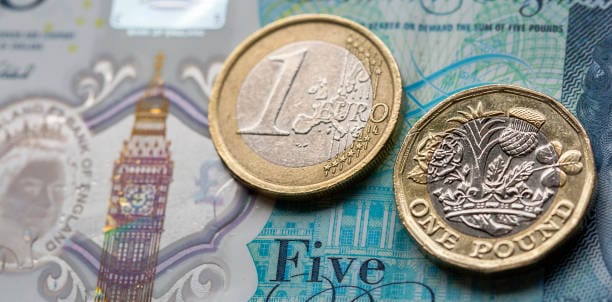GBP/EUR exchange rate week review: pound retreats from 23-day high versus euro
02/12/2024 to 06/12/2024: The pound euro (GBP/EUR) exchange rate arrested its gains made earlier in the week in the wake of the French government's collapse after the potential for political stability emerged - bolstering the single currency.

Monday
The pound euro (GBP/EUR) exchange rate tested its recent multi-year high just below the €1.21 benchmark. With the French government on the brink of collapse and Trump trade gathering pace again the single currency slumped.
Tuesday
The pound traded sideways through the €1.20 mid-range amid downbeat UK retail sales data for November and political turmoil in France, where a vote of no confidence against Prime Minister Michel Barnier loomed.
Wednesday
The pound euro exchange rate climbed to a 23-day high, a fraction below €1.21 after French Prime Minister Michel Barnier was ousted in a no-confidence vote, causing the government to collapse. The downward pressure on the single currency was compounded by figures showing the Eurozone services sector contracted for the first time since January.
This overshadowed comments from Bank of England (BoE) Governor Andrew Bailey, who signalled four UK rate cuts next year as inflation cools. However, he tempered the dovish outlook by reaffirming the central bank’s gradual approach to policy loosening.
Contact a currency specialist to discover how they can help you take control of exchange rates
Thursday
The pound retreated into the €1.20 mid-range after the euro drew strength from an improving French political outlook following the resignation of Prime Minister Michel Barnier's government.
Markets saw a path forward after Emmanuel Macron committed to seeing out his term as president, and the influential Marine Le Pen said her party would support the new government's budget.
The single currency was also bolstered by its negative trading correlation with the dollar, which struggled.
Consequently, investors brushed off data showing retail sales in the Eurozone declined in October for the first time in four months, reversing gains made the previous month.
The pound’s downside was limited by mounting expectations that the BoE may cut interest rates more slowly than other central banks. In its annual economic survey, the Organisation for Economic Co-operation and Development said UK interest rates will fall at a slower pace than expected following the tax rises, spending hikes and increased borrowing proposed in the autumn Budget.
Friday
The pound euro rate firmed slightly in response to German industrial output data, which showed production unexpectedly fell in October, increasing the risk of a winter recession in Europe’s largest economy.
Production was down by 1% in October from the previous month, quashing hopes that it may slowly be emerging from its malaise, denting the euro. Economists had forecast a 1.2% rise following an upwardly revised decline of 2% in September and an increase of 2.6% in August.
The pound euro rate ended the week at around 1.205.
Looking ahead
The European Central Bank (ECB) is widely expected to trim interest rates by 25 basis points on Thursday. For now, the central bank is not expected to react to heightened political turmoil in Europe.
UK GDP data for October could support the pound on Friday if it matches forecasts. Growth of 0.2% is predicted, after the economy unexpectedly contracted by 0.1% in September, reflecting a 1.6% uptick on an annual basis.
